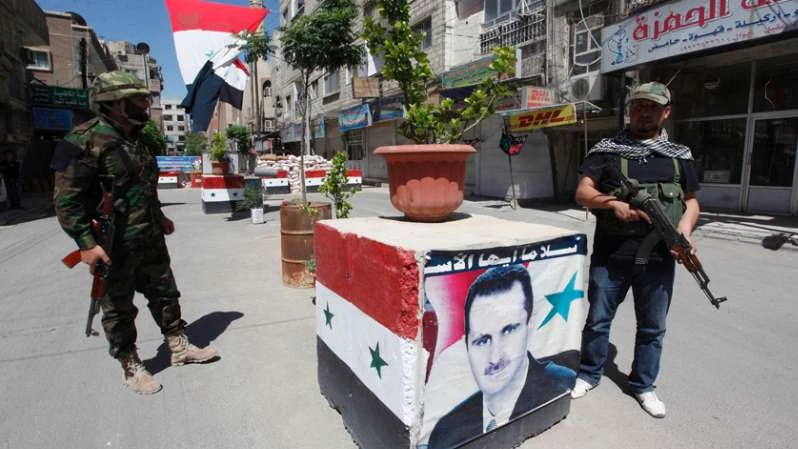In a country where the laws are created to protect a corrupt government instead of the people it is supposed to be governing anything goes as long as it does not challenge the authority of the regime.
After almost five years of conflict between Assad forces and opposition fighters, Assad has also become increasingly more dependent upon shabiha (the regime’s paid thugs) and foreign militia members to work as guards at the multitude of regime checkpoints.
The majority of shabiha are from Assad’s own Alawite sect and they make the most of the opportunity that guard duty presents them for calling on all their evil creativity and acting skills in order to shake down travelers before allowing them to pass.
It has been reported that those travelers who are crossing into regime controlled areas from liberated zones are harassed and forced to pay bribes or risk detainment or confiscation of important documents like military service waivers. Guards have been known to tear up university issued waivers on the spot whenever it suits them. They know there will be no repercussions for their actions as long they do not undermine the regime they represent.
At many checkpoints passports are gathered from all the occupants of a vehicle, supposedly to authenticate them, and then held for ransom until that particular checkpoint or guard’s price is paid. Bus and taxi drivers familiar with the routes and practices of given checkpoints often gather money from passengers ahead of time in order to expedite the process. The more money that is paid, the quicker they are allowed to pass. Drivers will also plan the timing of their trips to coincide with the shifts of guards whose prices are lower than those who work at other times of day.
Guards have also been reported to have sexually harassed young women, sometimes even threatening to rape them in the presence of their own family members. They do this not only for the money, but also for the power rush they get from being able to intimidate and control. And unlike other international actors in the Syrian conflict, their threats are often followed through with heinous actions. As such they are following in the footsteps of their leader and mentor Assad.
It can be even worse for young men, even if they are currently university students whose military service has been temporarily deferred. Guards will often take their paperwork and say they are going to check them against the lists that they have. They then come back and say that the young man’s name is indeed on the regime’s wanted list even if it is not.
In a panic the young man begins to negotiate in earnest in order to avoid being arrested and hauled off to prison or even worse.
The specters of detainment and torture are ever present in the minds of Syrians and the feelings of relief after successfully getting past such an ordeal have been compared to being born again. Those who do not make it through often end up dead or wishing that they were. Many Syrian families have family members who disappeared at a checkpoint on their way to somewhere inside Syria.
The harassment is not always confined to young men either. Teenagers all the way up to men in their early 40s are considered to be suitable for military service. But in reality, checkpoint guards are far more interested in the profits they gain through extortion than they are in the regime’s ability to keep replenishing its depleting number of forces.
And contrary to some reports, it is not only those who wish to pass from liberated areas into regime territory that are required to pay. Even Syrians living in regime controlled areas who originally supported Assad are being treated the same way causing many of them to turn against him or flee the country as well.
Life continues to become increasingly difficult in Syria, psychologically as well as physically, and it is hard to imagine how the evil and corrupt practices that have become so commonplace will ever end as long as an illegitimate and corrupt system is allowed to remain in place.



التعليقات (0)